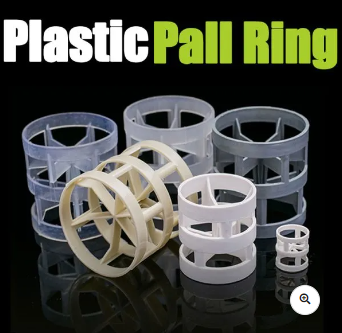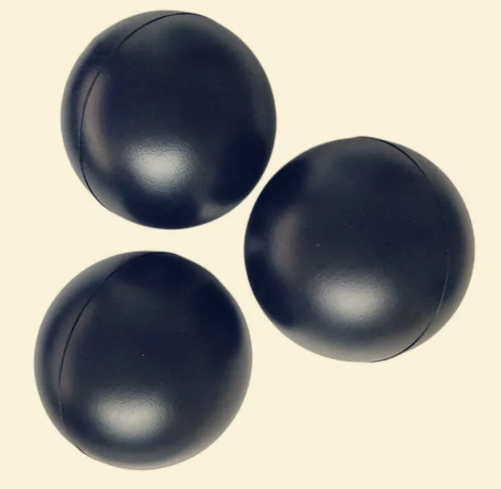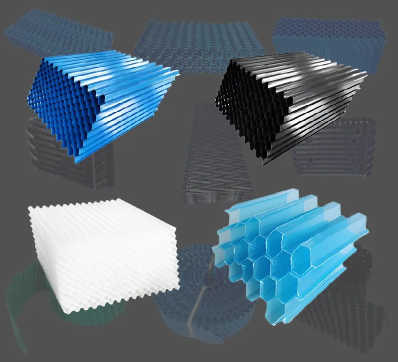Water treatment is a fundamental process crucial for ensuring access to clean and safe water, necessary for a variety of applications such as drinking, irrigation, industrial processes, and ecological balance. As the demand for effective and sustainable water management solutions continues to grow, several innovative technologies have emerged. This article explores four key components—MBBR media, shade balls, plastic pall rings, and tube settlers—that play vital roles in modern water treatment systems, enhancing their efficiency and effectiveness.

1. MBBR Media: Enhancing Biological Treatment
Moving Bed Biofilm Reactor (mbbr media) technology is revolutionizing the way wastewater is treated by utilizing specialized MBBR media. Typically made from high-density polyethylene, this media provides an extensive surface area for the growth of biofilm, which is crucial for the microbial processes that break down organic matter and pollutants in wastewater.
MBBR systems offer several advantages over traditional treatment methods. They are compact, which makes them suitable for urban environments where space is limited, and they can adapt to fluctuating wastewater loads, ensuring consistent performance even during peak periods. This adaptability is particularly important in managing the variable flow rates that many wastewater treatment plants experience. Moreover, MBBR technology is effective in the removal of nitrogen and phosphorus—nutrients that can lead to eutrophication in nearby lakes and rivers if released untreated. The integration of k3 mbbr media systems into existing wastewater facilities can be accomplished with relative ease, providing a cost-effective solution for municipalities seeking to enhance their treatment capabilities.
2. Shade Balls: Protecting Water Resources
Shade balls have emerged as an innovative and practical solution for water conservation and quality protection. These lightweight plastic spheres, typically black in color, are deployed on the surface of open water bodies, such as reservoirs and ponds. Their primary functions include reducing evaporation, limiting algae growth, and safeguarding water quality by acting as a barrier to contaminants.
By covering large surface areas, shade balls can significantly reduce the amount of water lost to evaporation, which is particularly beneficial in arid and semi-arid regions where water scarcity is a pressing concern. In addition to conserving water, shade balls help maintain optimal water temperatures, which is vital for aquatic ecosystems. They also reduce the proliferation of harmful microorganisms, ultimately contributing to the overall sustainability of water resources. This dual function of conserving water and protecting quality makes shade balls a valuable tool in water management strategies, particularly in urban areas that rely on surface water sources.

3. Plastic Pall Rings: Improving Mass Transfer
Plastic pall rings are essential components in various water treatment systems, especially in biological and chemical treatment processes. Their unique design enhances the surface area for mass transfer between liquid and gas phases, which is particularly critical in aeration processes where oxygen needs to be effectively transferred to wastewater to support microbial activity lamella tube settler.
Made from durable and corrosion-resistant plastic materials, pall rings are designed for long-term use in challenging environments. Their structure allows for optimal fluid flow, minimizing the risk of clogging and ensuring efficient operation in trickling filters, biofilters, and other treatment systems. By improving the efficiency of oxygen transfer and overall mass transfer processes, plastic pall rings play a crucial role in enhancing the effectiveness of wastewater treatment, ultimately leading to improved water quality.
4. Tube Settlers: Maximizing Sedimentation Efficiency
Tube settlers are innovative devices designed to enhance sedimentation processes in both drinking water treatment and wastewater treatment plants. These modular units consist of a series of inclined tubes that promote the settling of suspended solids from water. By increasing the effective settling area, tube settlers allow for greater clarification of water, resulting in higher quality effluent.
This technology is particularly advantageous for facilities looking to maximize their sedimentation efficiency without requiring extensive additional space. Tube settlers can significantly improve the performance of sedimentation basins, leading to reduced turbidity and improved water quality. Their modular nature allows for easy installation and retrofitting, making them an attractive option for upgrading existing treatment facilities.

Conclusion
The integration of innovative technologies such as MBBR media, shade balls, plastic pall rings, and tube settlers represents a significant advancement in the field of water treatment. These solutions not only evaporation balls enhance the operational efficiency of existing systems but also contribute to sustainable water management practices. As the global demand for clean water continues to rise, the adoption of such technologies will be essential in ensuring the protection and preservation of this vital resource for future generations. By embracing these innovations, we can better address the challenges of water scarcity and environmental sustainability in an increasingly water-conscious world.
Media Contact
Company Name: Pingxiang City ZhongXing Packing Co., Ltd
Email: Send Email
Address:Luqian Industry Zone, Lashi Town
City: Pingxiang
State: Jiangxi
Country: China
Website: https://www.mbbr-media.com
